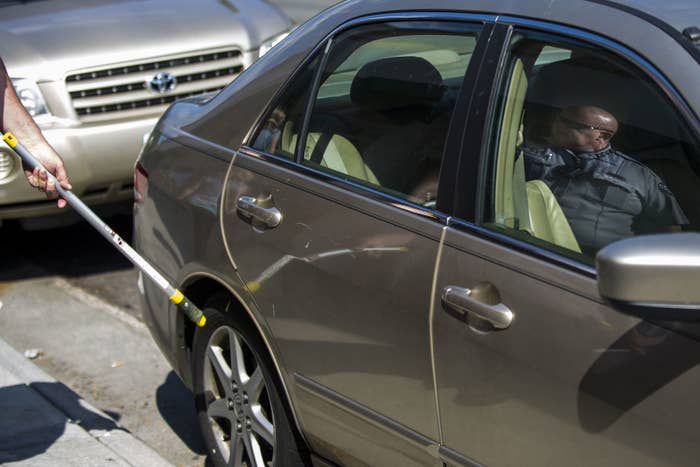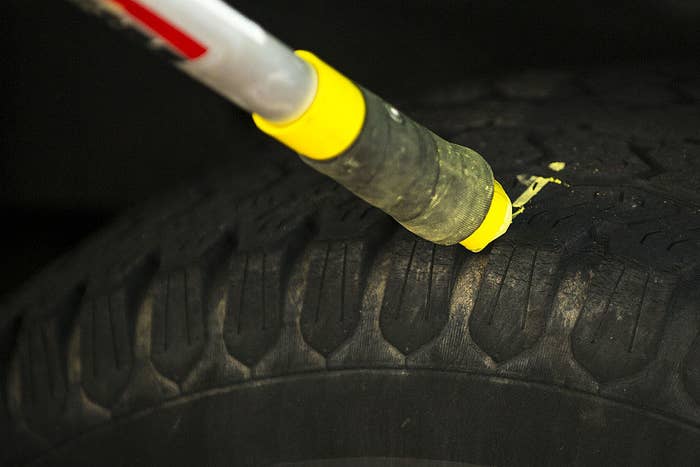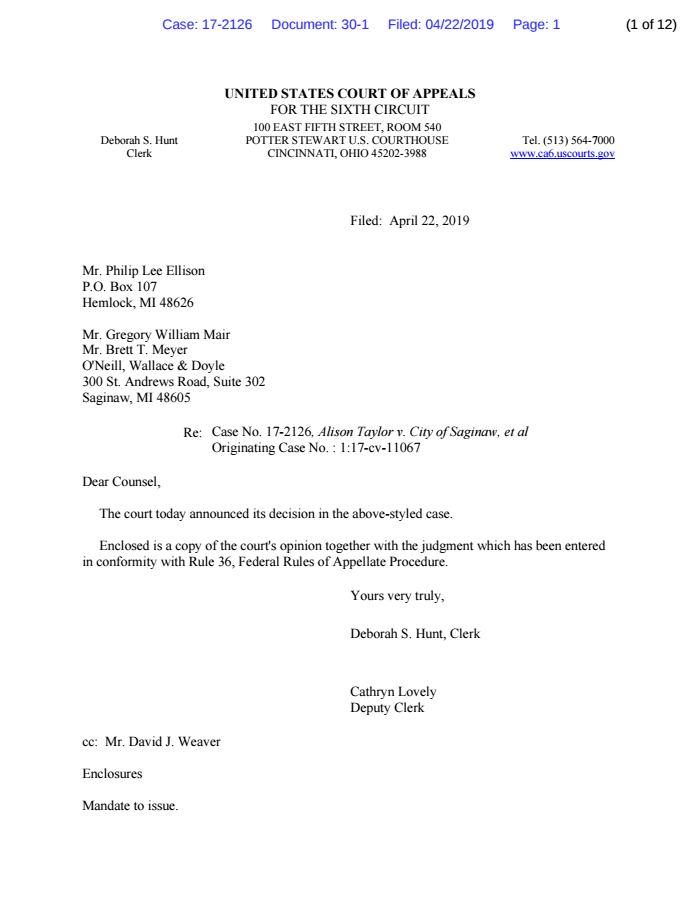
A federal appeals court ruled Monday that “chalking” of car tires — a common practice by parking enforcement officers across the US — violates the Constitution.
A three-judge panel of the 6th US Circuit Court of Appeals ruled that putting a chalk mark on tires in order to track how long a vehicle has been parked was a violation of the Fourth Amendment, which protects people against unreasonable searches of their property.
Chalking is usually done in places where there are no parking meters to enforce time limits. In such areas, a parking officer will mark a car tire with chalk and then return to the car after the parking time limit has passed. If the chalk marks are still on the tire — a sign that the vehicle has not moved — the officer will issue a citation.
The 6th Circuit Court panel issued its opinion with regard to a 2017 case in which Alison Taylor, a Michigan woman who received 15 parking citations in three years, sued the city of Saginaw and its parking enforcement officer for violating her Fourth Amendment by chalking her car tires without her consent or a valid search warrant.
Taylor’s lawsuit was dismissed by a Michigan district court, which ruled that the practice of chalking amounted to a “reasonable” search of Taylor’s car because people had a lesser expectation of privacy with cars and because the search was to protect the public’s safety under the “community caretaker exception.”
However, the three-judge federal appeals court panel reversed the district’s court decision, finding that the chalking of Taylor’s car tires amounted to an unreasonable search of the car under the Fourth Amendment and one that would require a search warrant. The 6th Circuit Court covers the states of Michigan, Ohio, Kentucky, and Tennessee.
The panel’s opinion, written by Judge Bernice Bouie Donald, states that officers can search a vehicle without a warrant only if they have probable cause to believe that the car contains evidence of a crime — which was not the case with Taylor’s car.
Donald also wrote that Taylor’s lawfully parked car did not pose any risk to public safety, and so the city was not acting as a “community caretaker” by chalking her car. The city chalked cars to raise revenue, not to protect the public’s safety, Donald wrote.

The panel also determined that while the city was entitled to regulate orderly parking, it had to do so within constitutional limits.
“The city does not demonstrate, in law or logic, that the need to deter drivers from exceeding the time permitted for parking — before they have even done so — is sufficient to justify a warrantless search under the community caretaker rationale,” Donald wrote. "Because we chalk this practice up to a regulatory exercise, rather than a community-caretaking function, we REVERSE."
The 6th Circuit court’s ruling sends Taylor’s case back to the US District Court in Bay City, Michigan.
The ruling may be the first of its kind. Taylor's lawyer, Philip Ellison, told the Washington Post that he could find no other chalking precedents.
Taylor, a friend of Ellison's, reached out to him after she read his 2016 Facebook post in which he ranted about his law partner getting ticketed while sitting in his chalked car, the Post reported.
“We made a federal case out of tire-chalking,” Ellison told the Post.
Ellison did not immediately respond to BuzzFeed News’ request for comment.
Orin Kerr, a law professor at the University of Southern California, tweeted that this was the first such case he had heard of.
Kerr suggested that parking enforcers could avoid violating the Fourth Amendment by simply taking a photo of the car or the close-up of the tire to mark the car's placement, instead of chalking it.
Third, and finally, seems easy enough these days for parking enforcers to just take a photo of the car, or even just a close-up photo of the tire, rather than chalk it. That way parking enforcement can learn the placement of the car w/o physically marking it. No 4A issues then.

